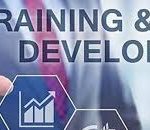Technical Training Division
The Technical Training Division at the Electronic Computing Center plays a fundamental role in enhancing the skills and competencies of employees and technical staff within the center or institution. This division is responsible for training personnel on modern technologies and providing comprehensive knowledge in computing, software, networking, and other technical fields. Below are its key responsibilities:
1- Designing and Organizing Training Programs
- Developing specialized training programs in various fields of electronic computing, such as programming, network management, cybersecurity, and hardware maintenance.
- Identifying essential technical topics to be covered in training courses based on the institution’s needs.
2- Conducting Training Courses
- Organizing workshops and training sessions for employees within the center or institution to enhance their technical skills.
- Providing training on new software tools and innovative technologies to ensure employees stay updated with the latest technological advancements.
3- Training on Institutional Systems and Software
- Educating employees on the use of systems and software critical to the center or institution, such as human resource management systems, financial systems, and network management tools.
- Conducting comprehensive workshops to enable employees to efficiently operate these systems and applications.
4- Providing Technical Consultation
- Offering technical consultations to assist employees in resolving challenges they may encounter while using tools or systems.
- Collaborating with other departments to identify specific training needs for each unit.
5- Evaluating Trainees’ Performance
- Monitoring trainees’ progress and assessing the effectiveness of training through tests and practical evaluations.
- Generating assessment reports that contribute to improving future training programs.
6- Updating Training Programs
- Regularly reviewing and updating training curricula to ensure alignment with the latest technologies and institutional systems.
- Incorporating modern technological advancements such as cloud computing, artificial intelligence, and information security into training content.
7- Training on Communication and Teamwork Skills
- In addition to technical expertise, providing training on effective communication and teamwork skills, which are essential in technical work environments.
8- Preparing Trainers and Technical Practitioners
- Training institutional trainers or technical practitioners on modern teaching techniques and effective training methods to enhance course delivery.
- Supporting trainers in developing innovative training methodologies.
9- Developing Training Materials
- Creating instructional materials such as manuals, video tutorials, and presentations to facilitate better understanding among trainees.
- Providing necessary resources, including software and hardware, to support the training process.
10- Ensuring Continuous Development
- Continuously improving the skills of the technical team through specialized training programs that enhance their expertise in various computing fields.
The Technical Training Division significantly contributes to raising the technical proficiency within the institution by equipping employees with the latest tools and software systems. It also fosters a sustainable learning environment that enhances overall institutional performance and boosts productivity.




